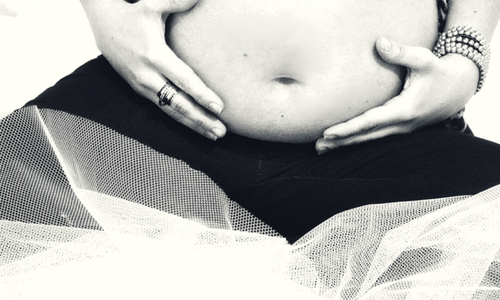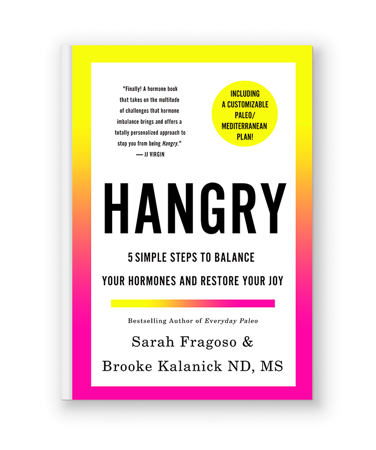
When I first moved to New York I was the most unhealthy version of myself.
Moving here was in some ways the worst thing I could do for my tenacious personality because it truly is the city that never sleeps. There is a buzz that is palpable 24/7 – and living on a busy corner in Manhattan, I felt buzzed all night long. I found it really hard to shut off – which let’s be honest, I am not good at anyway. I’ve never been anywhere that does the hustle quite like NYC and I loved it.
I have always thrived on stress and meeting people here that were so ambitious and seeing all the opportunities this place has to offer, well I was hooked.
We moved here knowing only one person and both had jobs that required us to have a steady client base (which we had none), there was no paycheck, no benefits, and no idea how we were going to afford living in our teeny, tiny, expensive apartment. So we hit the ground running…or I should say sprinting.
Forging new friendships in the fitness world and busting my buns to build a practice meant I was busy going out (a lot), sleeping only four hours a night, trying to start a blog (this one!) and make a mark on the web, get a book contract….and trying be in great shape not only because I was in the fitness and weight loss industry, but all of a sudden the girls next to me in my gym didn’t just look like supermodels, they were actually, um, supermodels.
Celebrities – and the bodies many of us unhealthily grew up coveting – are part of the everyday life here and I fell into comparison and the crazy crap it makes us do.
I was over training, under eating, definitely under sleeping and most certainly over stressing. My progress both in strength and weight loss was totally stalled and I woke up every day with the most frustrating puff. I felt inflamed and fluffy and I hated it.
The hormonal disruption and inflammation from my harried lifestyle left me miserable and the morning puff I was dealing with was a product of everything in this post. I had it all as they say – and I was a wreck.

I was looking for a pic of myself all puffy faced to use in this post but then I remembered, I delete those….
The most common causes of water retention and the dreaded “puff”
1. Low Progesterone
Progesterone helps regulate our fluid balance and when it’s low we can retain water easily. Think of PMS water retention where you can’t get your rings on and your hot new boots are too tight.
For me and other women that don’t ovulate well (like those with PCOS) as well as any woman under stress can experience low progesterone related water retention.
Our main source of progesterone between puberty and peri-menopause is our ovaries.
Once we ovulate (meaning a dominant follicle releases enough estrogen to stimulate an LH signal from the pituitary to cause an egg to be released) the follicle that released the egg is absorbed back into the ovary and becomes something new (it’s rather cool actually), it becomes a new hormone producing tissue called the corpus luteum (Latin for yellow body). This little baby is what makes your progesterone until you either get pregnant and develop a placenta to make it, or you have a period and progesterone levels naturally fall.
Our other source of progesterone – and our main source after menopause – is our adrenal glands.
When ovulation and the subsequent corpus luteum don’t happen (i.e. due to PCOS) or when we are under tremendous stress and resources get shunted to make cortisol, we can quickly end up low progesterone.
Get you FREE copy of my Guide To Lab Testing & Your Hormones
This guide covers hormonal testing and thyroid patterns and will show you how to suss out the Hormonal Dealbreakers of inflammation, anemia and blood sugar problems.
Get Your Free Lab Guide HereI wrote about the unique consequences of stress in women here.
What this low progesterone due to high cortisol looks like is a late or missed period when you’re all stressed out. This phenomenon is called the progesterone steal.
In my case, I not only have PCOS but the stress I was putting myself under caused my period to go buh-bye for months at a time. Thank goodness I stopped this madness and took my own advice all around and was able to get my cycle back on track and pregnant easily. During this time I worried this would be a huge problem for me when Joe and I were ready to start trying for a baby – more stress right?
2. Inflammation
Inflammation can stem from a variety of course ranging from autoimmunity such as Hashimoto’s, elevated cortisol, over-exercising (in general or when your physiology can’t handle it) or food sensitivities.

When your stress hormone cortisol is elevated it’s not uncommon to wake puffy and achy. You may also wake unrested even after a full night’s sleep. If your cortisol is elevated in the morning you may wake with a low appetite in general or with cravings for carbs or carby/fatty foods (doughnut anyone?) vs. the high protein veggie omelet.
And keep in mind with elevated cortisol you may also feel totally normal – it isn’t always possible to tell your stress hormone rhythm abnormalities based on symptoms alone. Often salivary testing is useful to suss out what’s really going on.
3. Over exercising?
This can increase inflammation both because it can create excess inflammation and oxidative stress on physiology that can’t handle it (i.e. you when have Hashimoto’s). This often looks like poor exercise tolerance, increased days of recovery necessary between workouts or inability to recover during workouts. This is due to the complex mechanisms of autoimmunity at play in Hashimoto’s causing excessive oxidative stress that you don’t recover from.
However in any of us, Hashimoto’s or not, too much intense exercise or even simply overdoing longer duration cardio can elevate cortisol and leave you in an elevated cortisol situation.
Please don’t be scared of cardio 🙂 but do understand that it can create a hormonal situation that’s unhealthy if it’s too much or in the wrong physiology. And when you have Hashimoto’s or other autoimmune disease you are at increased risk for not tolerating your diet well.
Order Hangry right now!
If you’ve ever felt like a Hangry B*tch and are ready to balance your hormones and restore your joy in just 5 simple steps then Hangry is for you!
GET YOUR COPY NOW
You may also have been under stress, taken the birth control pill or hormone replacement therapy (HRT), taken antibiotics or have endured a host of other seemingly benign things and now you have leaky gut or increased intestinal permeability. When this happens, larger proteins get through for your immune system to see and react to. This can look like bloating, bowel troubles ranging from constipation to loose stools to anything in between.
Surprisingly, leaky gut can also look like mood changes, breakouts, skin rashes or fatigue. For me it looked like all of those, but no real digestive complaints at all. While I clearly have a genetic predisposition to gluten intolerance looking at my family tree, these few years of chaos definitely put me over the edge.
As a desperate attempt to get my fat loss un-stalled I tried taking out the small amount of gluten still left in my diet (at this point in the form of some sprouted grain bread and WASA crackers, and the occasional micro-brew). Now that I’m totally gluten free, even the smallest accidental exposure makes me puff up like a toasted marshmallow. It also gives me deep, painful, red cystic type breakouts and bloody gums as well as a completely hopeless, fatalistic depression.
I had these symptoms off and on before these few years of crazy stress (on the heels of med school, which was a 11 years of unrelenting stress) but never tied them to anything I was eating. But they became constant nagging problems as my food intolerance ramped up due to stress taking a toll on my gut.
I also get water retention simply from over doing my carb tolerance. With insulin resistance and PCOS, this is easy for me to do. Water follows sugar (aka glucose) so simply over doing carbs can also pack on some extra water. And of course you can have more than one of these going on – you probably do. I certainly did.
Consider this: you’re stressed and not getting enough sleep, your period is late or your PMS is horrible, you’re stress eating and craving muffins and cookies and unbeknownst to you, you’re sensitive to gluten and wheat.
Here we probably have low progesterone, high cortisol, inflammation from food sensitivities and probably too many carbs.

Some days our hormones seem like a beautiful orchestra playing melodically together, and then at times like this they seem more like, oh what’s the word….a hot mess.
What To Do To Get BETTER
- Look for sources of stress as this will hit you on multiple levels to increase the puff.
- Get help if your PCOS is giving you grief.
- If you have Hashimoto’s or other type of autoimmunity, you must get oxidation and inflammation under control as they beget more oxidation and inflammation. And this means more tissue destruction, need for more meds, a worse quality of life and more autoimmune issues. And feeling puffy.
- Consider it may be your diet or that you may have food sensitivities even if you don’t have a lot of digestion symptoms like bloating, gas, heartburn, pain after eating, diarrhea, constipation, or alternating between the two.
- And if you’re stuck in the puff right now you can use 200mg of B6 per day and 1g taurine to help pull off the puffy. As well as up your intake of green veggies that act as a natural diuretic. Especially cucumber, asparagus and light greens like lettuce and watercress.
Order Hangry right now!
If you’ve ever felt like a Hangry B*tch and are ready to balance your hormones and restore your joy in just 5 simple steps then Hangry is for you!
GET YOUR COPY NOW
